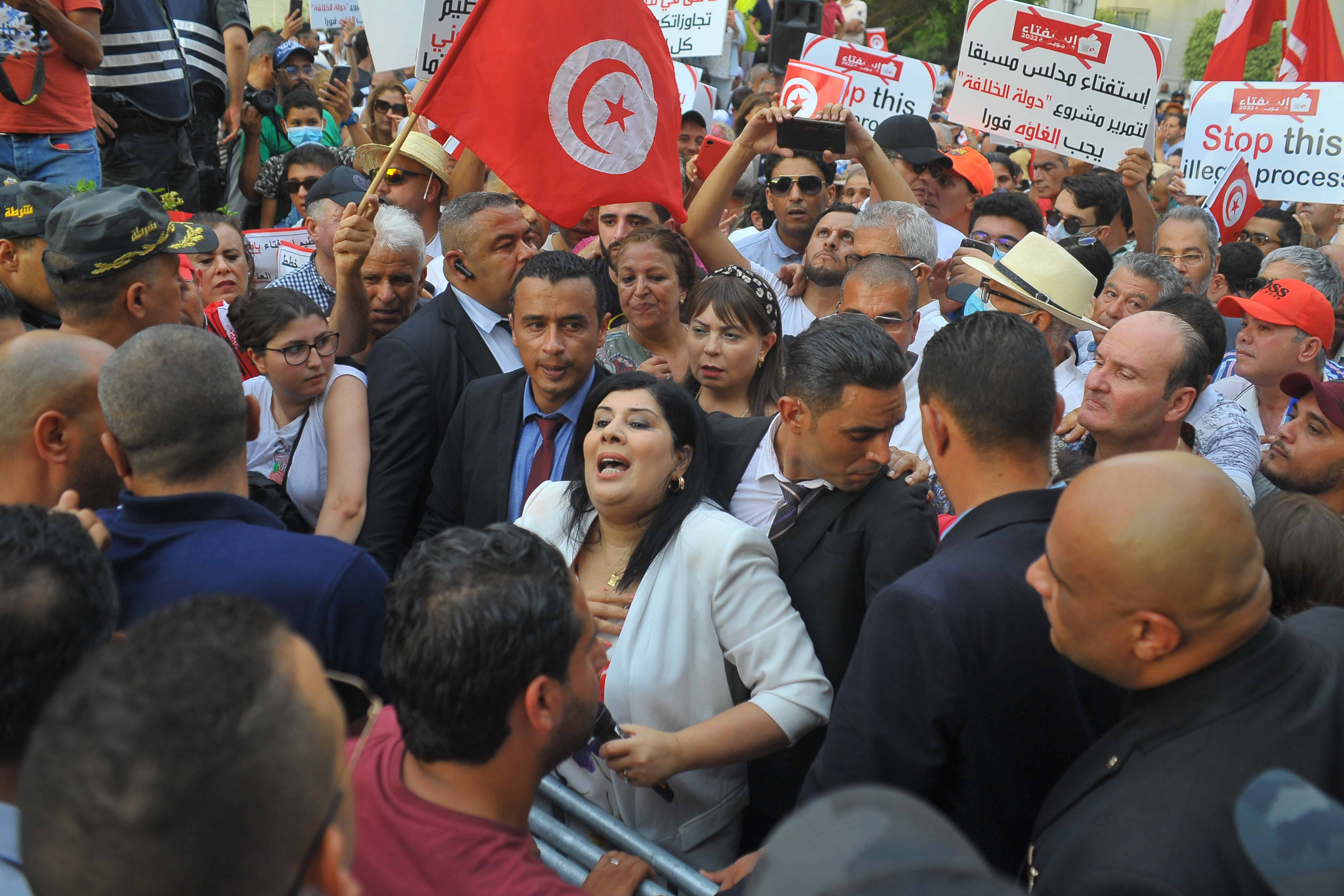Tunisian President Kais Saied published an amended version of a draft constitution late Friday in an attempt to ward off criticism after the original was slammed for the nearly unlimited power it gave his office.
The new constitution, which will be put to a referendum this month, is the centerpiece of Saied’s plan to remake the North African country’s political system.
It was unveiled almost a year after Saied sacked the government, suspended parliament and seized wide-ranging powers in moves opponents have called a coup against the only democratic system to have emerged from the Arab Spring revolts.
The legal expert who oversaw the constitution’s drafting has disavowed it, saying it was “completely different” from what his committee had submitted and warning that some articles could “pave the way for a dictatorial regime”.
The amended draft, published around midnight Friday, makes changes to two articles, though it still retains a broad range of powers for the head of state.
Hours before the new text was released, Saied announced in an official video that “clarifications needed to be added to avoid confusion and interpretation”.
Changes have been made to an article that stated Tunisia “is part of the Islamic community” and that “the State must work to achieve the objectives of Islam” — it now adds “within a democratic system”.
The clause had been previously criticized for its ambiguity by those who advocated for a completely secular system, and international rights group Amnesty International had warned it could “provide a mandate to discriminate against other religious groups”.
The other amendment is to an article about rights and freedoms, which now clarifies that “no restriction may be placed on the rights and freedoms guaranteed in this Constitution except by law and necessity imposed by a democratic order”.
The rest of the document remains largely unchanged.
Saied wants a presidential system to replace the country’s 2014 constitution, which enshrined a mixed presidential-parliamentary system often beset by deadlock and marred by corruption.
Under his proposal, “the president of the republic carries out executive functions with help from the government”, whose chief would be appointed by the president and not subject to confidence votes in parliament.
The document would water down the role of parliament, creating a new parliamentary chamber for “regions and districts”, chiming with Saied’s long-held vision for a decentralization of power.
The president would be the head of the armed forces and be charged with naming judges, who would be banned from striking.
Some Tunisians have welcomed Saied’s moves against the sclerotic system that emerged from the revolt that toppled dictator Zien El Abidine Ben Ali in 2011.
But others have warned he is targeting political rivals and dragging the country back towards autocracy.

